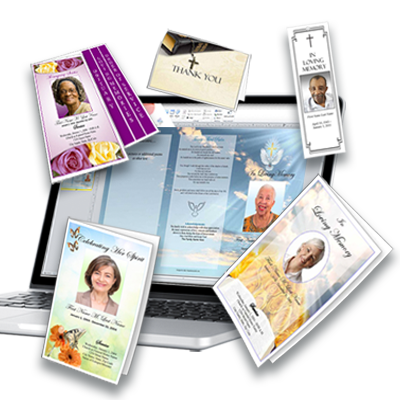Your Online Accounts -- What Happens to your Facebook, Twitter and other Accounts After Death?
Most people worry about leaving a carbon footprint when they die, but what about their digital footprint? Society’s dependency on the Internet continues to grow, and so has the number of online personal accounts an individual has. But, what happens to those user accounts when a person dies? If they aren’t closed and are left unattended, they can get hacked and the owner’s identity stolen. It’s not uncommon, and it is serious. What will happen to your digital footprint when you die?
Understanding Your Digital Footprint
Every time you log onto the Internet, whether it’s through a computer, television, mobile phone or tablet, you leave a digital footprint trail. This online presence provides data on everything you clicked on, searched for, shared and your location, as well as your IP address, what you’ve said and what was said about you.
The information is then used in behavioral targeting, understanding your social influence, targeted marketing and creating a digital reputation, among other things. Although encrypted, your digital footprint also includes all your usernames and passwords. Your digital footprint can include:
- A social network profile
- Images you posted online or that others posted of you
- Anything you’ve written or what was written about you, such as in a forum, blog or discussion boards
- Any website in which you create a username and password
- Any article you’ve written or that was written about you
When a Loved One Dies
Most people today have a digital footprint, and when they die, the trail never truly goes away. However, do you know what to do with your loved one’s social network profiles or other traces of their cyber footprint when they die?
Obviously, if you have access to his or her usernames and passwords, then you can deactivate the accounts and delete personal information. If you don’t have that information, there are ways to protect your loved one’s identity:
- Facebook: With proof of his or her death, such as a death certificate or online obituary, you can either deactivate the account or change the profile to a memorialization page where others can send condolences or leave personal messages and photos. Friend requests are not available on this type of profile.
- Twitter: You can deactivate a loved one’s account with proof of death as well as his or her government identification (state ID card, drivers license, etc.)
- LinkedIn: A simple form with questions about the deceased person needs to be filled out and sent in for review.
- Email: Most of the major email providers such as Hotmail, Gmail and Yahoo! simply require proof of death to shut down an email account. However, with Yahoo!, next of kin can request the account be deactivated, but will not be allowed to actually go into the email account.
- Online banking and credit cards: Contact each individual company to find out their rules regarding closing online accounts when someone dies.
Remember, just because you can delete information or close a loved one’s accounts, there is still the chance some of that information will remain online for an indefinite amount of time.
Protecting Your Digital Footprint
Don’t leave your next of kin in a lurch when you die. Protect your online accounts from possible identity thieves by taking the following steps:
- Keep all your passwords to all your online accounts in a password manager such as KeePass, LastPass, Password Genie or mSecure. These let you keep all your passwords in a secure place, only needing one main password to get into the file.
- Sign up with Google’s “Inactive Account Manager” and dictate what to do with your related accounts if they remain stagnant for a specified time.
- Consider appointing an executor of your online estate. This allows one person, upon your demise, to take care of your online profiles and accounts. He or she can close accounts, delete images and wash away some of your digital footprint.
Privacy Laws
Each state has different mandates regarding the privacy of a deceased person’s digital information. Read the fine print in any agreement you sign to find out what rights you or your next of kin has once you die.
This is just one aspect of your digital footprint. You can also use the internet to memorialize your loved one once they have passed. Existing Social Media accounts may be an excellent way to announce your loved one's passing to friends and family members. You can post a funeral program to the accounts, and also post online obituaries and online funeral announcements.



